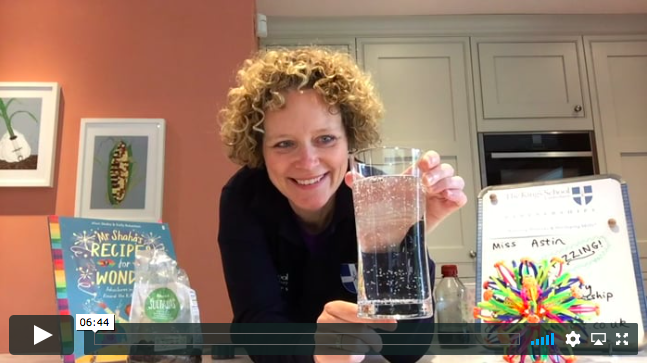Resources
Week commencing 10th May 2021
- PSTT – Science Club Packs. Aimed at teachers or other adults looking for support to introduce a science or STEM club to primary aged children, PSTT has created a number of free to download, easily-accessible club packs. Topics are Earth Explorers, Engineering Our World, Challenge Chasers, Sensory Sparks. Science & STEM Clubs | Primary Science Teaching Trust (pstt.org.uk)
Week commencing 28th March 2021
- PSTT –Subject Leader Self-evaluation Tool to help audit science in your setting
- Science Stories from Claire Fearon. A series of science stories produced by Claire for her Master’s dissertation and has shared them. They can be found here. She would appreciate any feedback that you are able to give her.
- Physics Partners have produced a series of 10 minute films for secondary non-specialist physics teachers but I thought you might also find them interesting and useful. Films – Physics Partners
Week commencing 21st march 2021
- PSTT – Pictures for talk booklet. A picture can be a very good stimulus for children to engage in effective talk in science. Using pictures is an inclusive approach which facilitates high levels of participation. Pictures can also be used as a starting point for inquiry. The discussions the children have will generate questions that they want to investigate. https://pstt.org.uk/application/files/4016/1599/1844/Picture_for_Talk_Booklet_FINAL.pdf
- PSTT – Recovery Planning this resource although developed for the first lock down last year is still relevant and useful. https://pstt.org.uk/resources/curriculum-materials/Recovery-Planning
- The PLAN assessment resources include a range of resources that are designed to support science subject leaders to implement effective and robust assessment systems. https://www.planassessment.com/science-subject-leader – Most of the resources are free.
Week Commencing 8th February 2021
- Ready-to-go mini science events to liven up lockdown from the Primary Science Teaching Trust. The Primary Science Teaching Trust have also sent through their termly newsletter which you can access here.
- Stem For Starters from the STEM Hub has a series of STEM and coding projects that are easy to do at home
Week Commencing 1st February 2021
Starters for Science from the Primary Science Teaching Trust is a series of five-minute videos created to support teachers to get started with practical science enquiry. They require minimal resources and can be used in school or at home. This means that teachers can do science enquiry with a class and any children who are at home can do the same lesson. Each video includes:
- A question or scenario related to the real world
- Time for children to think about what they already know
- A demonstration of a starter practical activity
- Time for children to think of their own questions
- Ideas about what they could find out for themselves
- Encouragement to share what they found with others
The Science Museum has a series of resources and have produced a Kitchen Science series. They have also produced a nice web link that allows you to see items not previously seen by the public. Unseen Things can be accessed here.
Week Commencing 25th January 2021
- Great Science Share Webscasts – xplore FREE, tailored, expert-led science CPD for educators with the Great Science Share for Schools starting in Feb
- Virtual tour of the International Space Station
- Weekly science challenges from Dr Jo Science
- Primary Science Teaching Trust – fun science at home
- Diamond Light Source have a series of family webinars that your more keen students might find interesting. Click here is for one about dinosaurs, others are available on their resources page.
Week Commencing 18th January 2021
Fun physics science experiments from the IOP including a Winter Activity Pack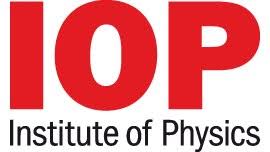
A series of great resources from the STEM learning site for home learning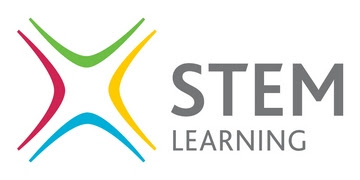
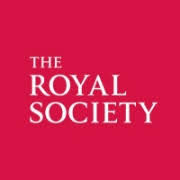 Brian Cox school experiments: six primary science activities with supporting worksheets and videos covering questions like ‘how do you change the size of a shadow?’ and ‘at what temperature does chocolate melt?’from the Royal Society
Brian Cox school experiments: six primary science activities with supporting worksheets and videos covering questions like ‘how do you change the size of a shadow?’ and ‘at what temperature does chocolate melt?’from the Royal Society

Ideas for doing practical science whilst respecting social distancing and CPD from the Primary Science Teaching Trust
https://pstt.org.uk/resources/curriculum-materials/Science-for-One
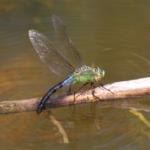 We have some wonderful wildlife videos to share with your children made by local wildlife film-maker, Mike Maloney. www.vimeo.com/user/59176548/folder/2081525
We have some wonderful wildlife videos to share with your children made by local wildlife film-maker, Mike Maloney. www.vimeo.com/user/59176548/folder/2081525
Your science leads will be given the teachers notes which Mike has prepared. They films could be used as a lovely nature treasure hunt to encourage the children and their families to explore outside.
Has your school got involved with “I’m A Scientist”? This is for Year 5 and 6 pupils who can ask questions of a live scientist – all carefully safeguarded and running successfully since 2003. https://imascientist.org.uk
On 30thJune ALL CPSP teachers are invited to a one-hour CPD on Teaching Magnets – please see this link for more details and registration: https://www.kings-partnerships.co.uk/events/teaching-magnets-primary-science-workshop/
Week beginning 8th June:
1. Here is a quiz is based on close-up photographs I took around my home using a little mobile phone microscope. They are all familiar household objects, materials and nature – it could be some fun for your classes, or you could put it on your portal or send it home to your families. Answers next week!
ROUND 1: Fruitbowl and garden
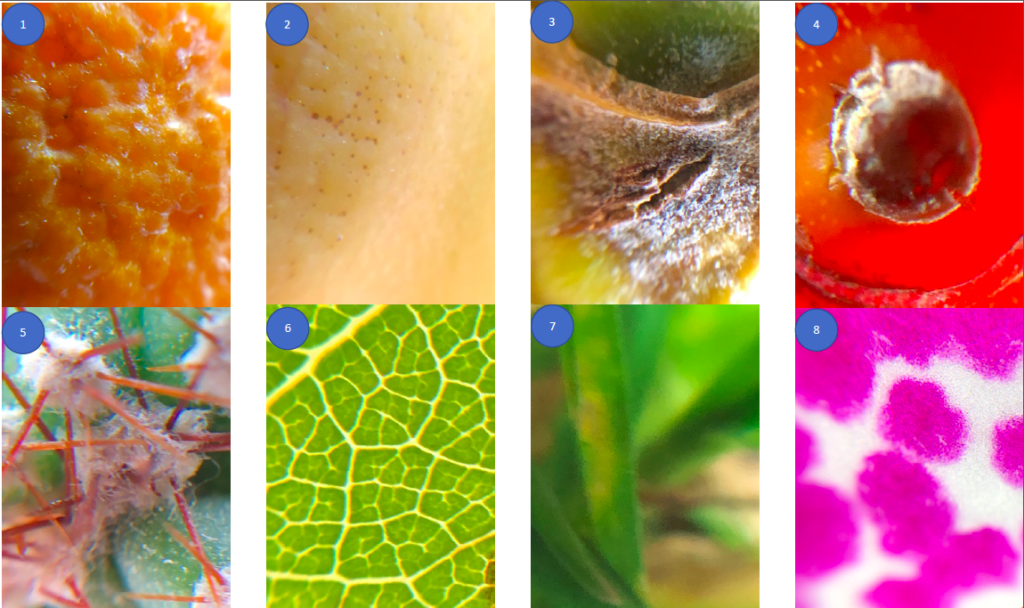
ROUND 2: Natural materials
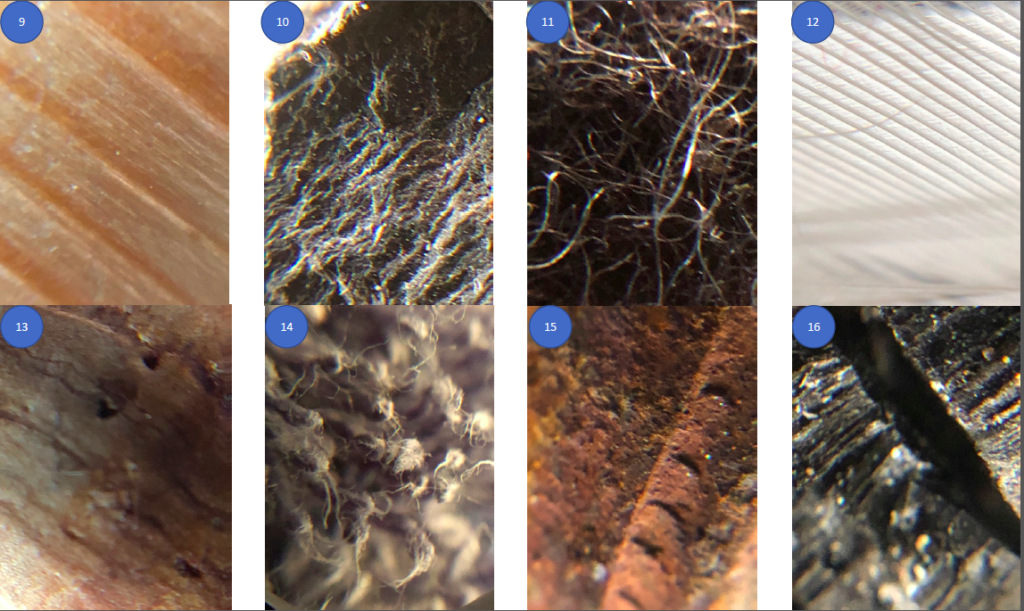
ROUND 3: Household objects
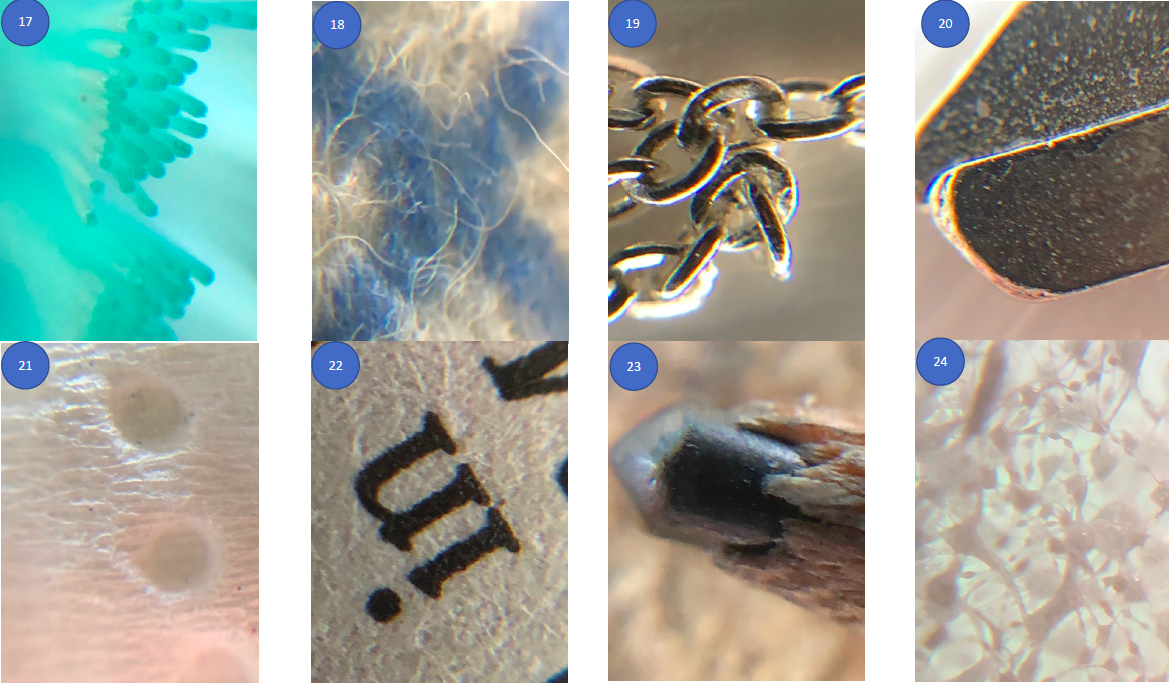
2. and, from the Kent & Medway STEM Hub:
VIRTUAL SCIENCE JAMBOREE SPECIAL
THIS THURSDAY 11 & FRIDAY 12 JUNE
Day 1 (Thursday)
· The Air Show
· The Chemical Challenge
· Racing Stripes
· Fizzability
· Magic Magnetic
· Robotic Hand
· The Kite challenge (CREST)
· Survival Game
· The Can challenge part 1
Day 2 (Friday)
· Water World
· The can challenge part 2
· The Rocket Challenge
· All at Sea
· Bright Sparks
· Dancing Ooze
· Eyestonishing
· Dover Diver
· Plants and water
· Go Viral
· Make it snow
Visit the The STEM Hub website at 10am on Thursday 11 June and enjoy the opportunities that STEM can provide. Then join us again on Friday 12 June.
We look forward to bringing the jamboree to you in your homes or organisations.
Watch our launch video on YouTube available at: https://bit.ly/virtualsciencejamboree
Equipment Resource Pack: https://bit.ly/virtualsciencejamboreepack
Webinar: https://bit.ly/webinarvirtualsciencejamboree
Week beginning 1 June:
If you’re looking for non-screen based ideas for the children, how about podcasts to listen to together? Here are two suggestions.
BRAINS ON! https://www.brainson.org– 40-minute podcasts about all sort of things that children might be interested in:
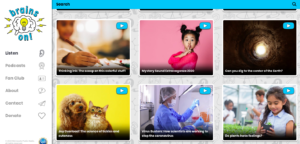
BUT WHY? https://www.vpr.org/programs/why-podcast-curious-kids#stream/0–
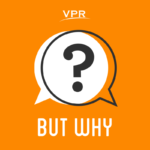 You can listen live or through the app with fascinating discussions such as Where does the sky end?
You can listen live or through the app with fascinating discussions such as Where does the sky end?
CREST Awards with KS1.
School is back in session – sort of! You can settle your KS1 students by helping them earn their Star CREST Awards, which are designed specifically for primary aged students. Give your pupils a break from screen learning with hands-on, practical activities that stimulate active thinking and learning.
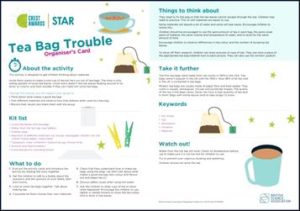
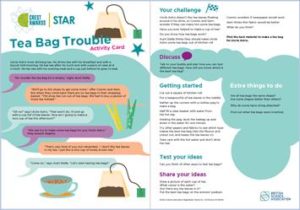
Find out how your Science curriculum can become more stimulating and engaging by visiting CRESTawards.org or Contact Kyla Winter (k.winter510@canterbury.ac.uk) for more info.
Week beginning 18 May:
SCIENCE ACTIVITIES
a) Have you found #LetsGoLive yet?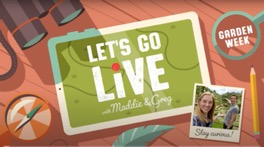
The wonderful Greg Foot and Maddie Moate are doing a live science show on YouTube at 11 am every day: https://www.youtube.com/channel/UCQ0_JQL4wdQd-Xe5hC4PwTg?pbjreload=10. Loads of fantastic activities! Greg and Maddie are Blue Peter/CBeebies stars and Canterbury residents – Greg has done science shows for CPSP in the past, so do support them!
b) Nature Scavenger Hunt
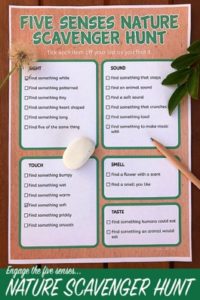
This is brilliant for EY/KS1 to encourage them to use all their senses when out on a walk in the country over half term, or in your school field. Printable version sent with email and available online. Do share any photos with us!
SCIENCE FILMS
How big is space?
This week’s recommendation is https://scaleofuniverse.com: an incredible interactive website where you can explore the sizes of objects from atoms to galaxies! You’ll love it!
Happy half term everyone!
Week beginning 11 May:
a) Origami animals: https://www.nhm.ac.uk/discover/origami-tyrannosaurus-rex-dinosaur.html
The Natural History museum had a tutorial on origami dinosaurs. Year 12 pupil Hiu Yu says: “I think origami is a nice activity because there’s no risk and everyone has paper to make them.”
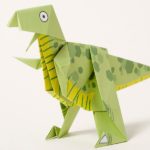 We’d love to see photos of the finished product!
We’d love to see photos of the finished product!
b) Virtual tour of the science museum: https://www.sciencemuseum.org.uk/virtual-tour-science-museum
This is brilliant! You arrive on floor 1.5, and I suggest you head straight down to floor 0 (see ‘lifts’ on the right of the screen), then turn around 180 degrees, go past the ticket desks and you’ll head into my favourite section: SPACE!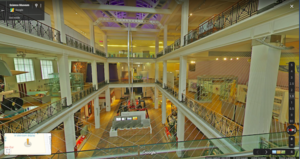
If you visit, why not write up your “Virtual Day Trip to the Science Museum” and share it with us?
c) if you enjoyed the ‘Kitchen Science’ fizzing experiment last week, you might like Steve Spangler’s amazing videos. Here’s one of my favourite experiments, the density tower: https://www.stevespanglerscience.com/lab/experiments/density-tower-magic-with-science/
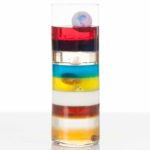
d) and for a bit of relaxing viewing, with amazing film footage, you can’t beat David Attenborough. Head to BBC iPlayer to watch series such as Blue Planet II: https://www.bbc.co.uk/iplayer/episodes/p04tjbtx/blue-planet-ii
Week beginning 4 May:
a) A fun art/craft project which can also teach a bit of science and maths is to make a paper twirler: https://artfulparent.com/paper-twirlers/
You simply cut out a spiral from paper or card – which you can decorate first – and hang it from the middle by some thread. If you hang it above a heater (in winter anyway!) the warm air rising bounces off the spiral arms and makes it turn. This is called a convection current.
You might have an elderly neighbour who would appreciate one of these to make their home look more colourful; otherwise, the King’s School can deliver to a care home. Let me know!
b) And this is a lovely collection of activities for all the family: https://www.exploratorium.edu/snacks/collection/family
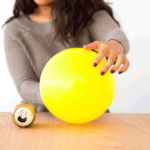 In this example, you rub a balloon to make it static, then use the static electricity to make a can roll!
In this example, you rub a balloon to make it static, then use the static electricity to make a can roll!
c) OK, as promised I had a go at making my own film of some fun “kitchen science” experiments! Feedback welcome – and I hope that this will encourage some of our students to try making some films, and maybe your children too? https://vimeo.com/415932994<iframe
Week beginning 27 April:
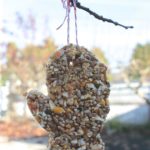 Make a bird feeder: with less traffic and cleaner air, we’ve noticed much more bird life and birdsong. Why not encourage birds to visit outside your window or your garden by making this bird feeder from simple materials?
Make a bird feeder: with less traffic and cleaner air, we’ve noticed much more bird life and birdsong. Why not encourage birds to visit outside your window or your garden by making this bird feeder from simple materials?
Can you spot some birds visiting? Maybe even take a photo or see if you can name some of them?
Instructions (and other projects) here: https://mamapapabubba.com/2012/11/14/cookie-cutter-bird-seed-feeders-a-toddler-friendly-method/
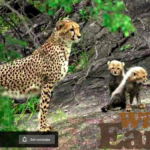 LIVE safari: every day at 2.00 pm you can join the Wild Earth team on a live safari and spot lots of amazing animals! Set a reminder for 2pm and join the team on a jeep through the African wilderness at https://youtu.be/vx-kYCQECpk
LIVE safari: every day at 2.00 pm you can join the Wild Earth team on a live safari and spot lots of amazing animals! Set a reminder for 2pm and join the team on a jeep through the African wilderness at https://youtu.be/vx-kYCQECpk
WildEarth’s safariLIVE is an award winning, expert hosted LIVE safari, broadcast directly from the African wilderness into your home. Available on both the internet and television, this show enables you to interact with an expert game ranger in real time. Safari vehicles, guides on foot, drones, balloons, rovers and remote cams are all searching for their favourite characters. Completely unscripted and unpredictable – this show is reality TV as it is supposed to be. Authentic and REAL.
_______________________________________________________________
Other science resources we love!
Science Sparks including a great booklet with lots of good ideas for early years but also for older primary pupils
Recommended science books for younger children
Primary resources for science, Geography and DT from BP Educational Services
The CLEAPPS website has these great resources for science experiments at home.
KCC have some home education resources and ideas
The Eden Project’s free resources
Visit museums all over the world and hang priceless paintings in your room! Lots of amazing ways to explore a huge catalogue of works with Google Arts & Culture
Supporting children and young people with anxiety
Lots of creative projects and creative links from Artis Foundation
Thanks to the STEM Hub at CCCU for these resources:
Encounter Edu – Live Lessons Encounter Edu designs and delivers sponsored STEM and global learning programs, transforming education inside and outside the classroom. You can sign up for this resource for FREE and join scheduled Live Lessons, broadcast online. There are free downloadable teacher books with lesson plans and resources, as well as opportunities for students to take part in remote learning, using their upcoming broadcasts.
FutureLearn features free online courses, with a huge variety of subject areas, from picking up some words in a new language, to learning about nature or the creative arts. Learn a new skill as a family, using videos and interactive online lessons.
Spot Spider Monkeys! Perfect for some home science, Zooniverse and the BSA need Citizen Scientists to form an armchair army! The task: protect the forest by finding spider monkeys. How? Using thermal imaging cameras, feedback online on the images where you can see monkeys glow! Watch a short video, look for any monkeys and just tell us “yes” or “no”. Only 17% of the task is complete, so join in and help out! This would be a lovely classroom starter/plenary, or a home learning activity. Visit the British Science Week website or click here to find out more!
The Royal Institute in London has an online section containing a series of short films making it fun, easy and cheap to do science experiments at home with your children. The films give you lots of ideas for activities that will help you explore the world around you, question and experiment together. There are ‘hands-on’ activities with plenty of learning opportunities and a chance for fun!
The STEM Learning website has a dedicated section of their website specifically designed for parents/carers to engage their children in activities that inspire them to learn more about the world of Science, Technology, Engineering and Maths. Simply Google: STEM Learning Parents, or click here.
The Great Science Share – The annual campaign to inspire primary and secondary children to share their scientific questions with new audiences runs again for 2020. GSS encourages students to ask and investigate their own questions – with no boundaries! Students can share work they have done in school or at home, with the community. The website gives guidance on organising a sharing event, as well as scientist answering children’s questions in videos, blogs and Twitter.
CREST is a scheme that inspires young people to think and behave like scientists and engineers. The awards include resources with all the activities needed for every age range. It could be done as class activities, as a STEM club, as a whole-school initiative… some of the activities could be done at home using everyday household items. Resources are free to download, and children can be certified form £1 per child. Find out more at www.crestawards.org
Regreen the Desert Practical Action , a charitable organisation, has launched a Regreen the Desert campaign – an exciting NEW STEM challenge suitable for pupils aged 8-16 years. The challenge inspires pupils to develop ideas to address a real-life problem caused by climate change. Their challenge is to capture rain water to irrigate crops for a community living in North Darfur, Sudan. There are free downloadable teacher and student packs available online.


